Growth Curve
The inexact science of raising kids
Sign up for our newsletter
We summarize the week's scientific breakthroughs every Thursday.
-
 Health & Medicine
Health & MedicineMoms’ voices get big reactions in kids’ brains
Mothers’ voices get big responses in kids’ brains, a neural reaction that may lead to feelings of calm.
-
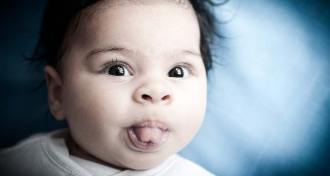 Health & Medicine
Health & MedicineResearchers face off over whether newborns are really copycats
Scientists disagree about whether babies can imitate movements and facial expressions shortly after birth.
By Bruce Bower -
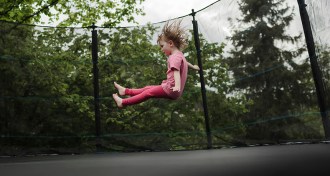 Health & Medicine
Health & MedicineHere are a few more things for the childproofing list
Some seemingly safe objects may be particularly dangerous for little kids.
-
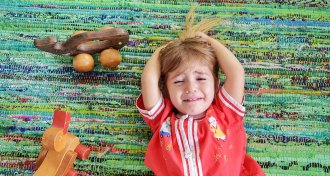 Health & Medicine
Health & MedicineHere’s some slim science on temper tantrums
Scientists have mapped the structure of toddlers’ tantrums, but preventives are hard to come by.
-
 Health & Medicine
Health & MedicineShould C-section babies get wiped down with vagina microbes?
A study suggests that a post-birth rubdown with vaginal fluid offers starter microbes to babies born by C-section. But it might not always be a good idea.
-
 Health & Medicine
Health & MedicineThe best advice on Zika virus and pregnancy is to know the unknowns
There are some practical steps pregnant women and women who want to be pregnant can take to minimize risk of Zika virus infection.
-
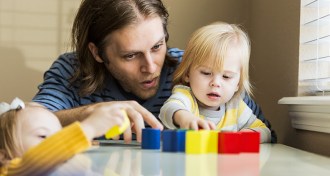 Health & Medicine
Health & MedicineNoisy toys mute conversations
Electronic toys put a damper on the conversations between parents and babies.
-
 Health & Medicine
Health & MedicineYoung infants have perceptual superpowers
Babies have superpowers that let them see and hear things that adults can’t.
-
 Health & Medicine
Health & MedicineIron helps growing bodies, but could too much do harm?
Iron fortification has been a public health victory in the fight against childhood anemia. But too much iron may be a cause for concern, scientists propose.
-
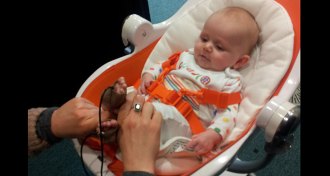 Health & Medicine
Health & MedicineYoung babies live in a world unto themselves
Young babies don’t let information from the outside throw off their touch perception, a finding that has clues for how babies experience the world.
-
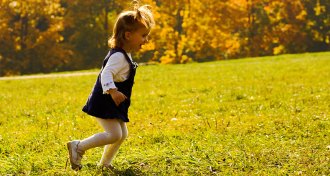 Health & Medicine
Health & MedicineWhy kids look funny when they run
Kids’ short legs give them little time to push high off the ground, a constraint that leads to the jerky toddler trot.
-
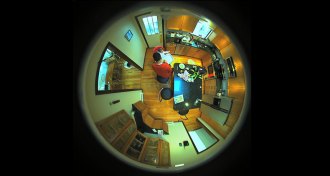 Health & Medicine
Health & MedicineFor kids learning new words, it’s all about context
By recording the first three years of life, researchers get hints about a child’s language development.